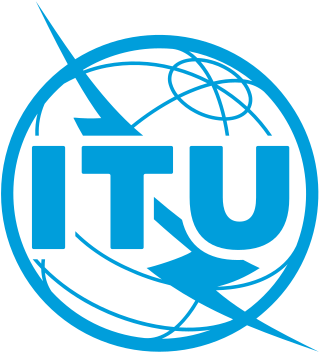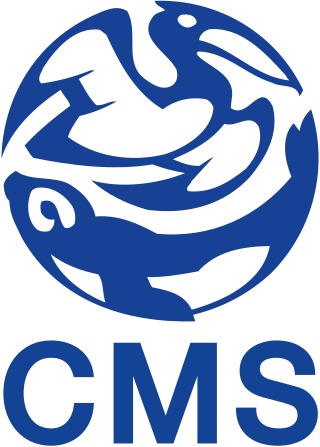Related Research Articles

The International Telecommunication Union is a specialized agency of the United Nations responsible for many matters related to information and communication technologies. It was established on 17 May 1865 as the International Telegraph Union, making it the first international organization. Doreen Bogdan-Martin is the Secretary-General of ITU, the first woman to serve as its head.

The World Health Organization (WHO) is a specialized agency of the United Nations responsible for international public health. Headquartered in Geneva, Switzerland, it has six regional offices and 150 field offices worldwide.
David Byrne SC is an Irish Fianna Fáil politician and barrister who served as Chancellor of Dublin City University from 2006 to 2011, European Commissioner for Health and Consumer Protection from 1999 to 2004 and the Attorney General of Ireland from 1997 to 1999.

The World Health Organization Framework Convention on Tobacco Control is a treaty adopted by the 56th World Health Assembly held in Geneva, Switzerland on 21 May 2003. It became the first World Health Organization treaty adopted under article 19 of the WHO constitution. The treaty came into force on 27 February 2005. It had been signed by 168 countries and is legally binding in 182 ratifying countries. There are currently 14 United Nations member states that are non-parties to the treaty.

The International Plant Protection Convention (IPPC) is a 1951 multilateral treaty overseen by the United Nations Food and Agriculture Organization that aims to secure coordinated, effective action to prevent and to control the introduction and spread of pests of plants and plant products. The Convention extends beyond the protection of cultivated plants to the protection of natural flora and plant products. It also takes into consideration both direct and indirect damage by pests, so it includes weeds.
Action on Smoking and Health (ASH) is the name of a number of autonomous pressure groups (charities) in the anglosphere that seek to publicize the risks associated with tobacco smoking and campaign for greater restrictions on use and on cigarette and tobacco sales.

Gary Thomas Johns is an Australian writer and former politician. He was a member of the House of Representatives from 1987 to 1996, holding the Queensland seat of Petrie for the Australian Labor Party (ALP). He served as a minister in the Keating government.
UN-Energy is an interagency mechanism within the system of the United Nations related to energy. It was created after the 2002 World Summit on Sustainable Development in Johannesburg, and its purpose is to create a coherent approach towards a sustainable energy system especially in developing countries to meet the Millennium Development Goals.

The Convention on the Conservation of Migratory Species of Wild Animals, also known as the Convention on Migratory Species (CMS) or the Bonn Convention, is an international agreement that aims to conserve migratory species throughout their ranges. The agreement was signed under the auspices of the United Nations Environment Programme and is concerned with conservation of wildlife and habitats on a global scale.
The Framework Convention Alliance (FCA), also called the Framework Convention Alliance for Tobacco Control, is a confederation of nearly 500 organizations from more than 100 countries which banded together to support the negotiation, ratification and implementation of the World Health Organization (WHO) Framework Convention on Tobacco Control (FCTC). The FCA was formed in 1999 when negotiations began in Geneva.

The International Forestry Students’ Association (IFSA) is an international network of students in forestry-related sciences. It is a globally organized and locally operated student organisation connecting forest and related science students to peers, forest-related organisations, and policy platforms. The IFSA has 130 member associations in over 50 countries. IFSA is a non-political, non-profit, and non-religious organisation that is entirely run by students.

Tobacco control is a field of international public health science, policy and practice dedicated to addressing tobacco use and thereby reducing the morbidity and mortality it causes. Since most cigarettes and cigars and hookahs contain/use tobacco, tobacco control also concerns these. E-cigarettes do not contain tobacco itself, but (often) do contain nicotine. Tobacco control is a priority area for the World Health Organization (WHO), through the Framework Convention on Tobacco Control. References to a tobacco control movement may have either positive or negative connotations, depending upon the commentator.
Evidence Informed Policy Network (EVIPNet) is a network, sponsored by the World Health Organization (WHO), which attempts to improve public health, especially in developing countries, by coordinating the efforts of policymakers and health researchers.
Thomas Zeltner is a Swiss physician, lawyer, and current chairman and interim CEO of the WHO Foundation. He was also the former Secretary of Health of Switzerland Federal Department of Home Affairs FDHA. He has a long history in public health and has repeatedly been ranked among the 12 most influential political figures of Switzerland.
The Global Smokefree Partnership is a multipartner initiative formed to promote effective smokefree air policies worldwide. The Partnership works by helping practitioners and advocates of smokefree policies.

The International Institute for Sustainable Development (IISD) is an independent think tank founded in 1990 working to shape and inform international policy on sustainable development governance. The institute has three offices in Canada - Winnipeg, Ottawa, and Toronto, and one office in Geneva, Switzerland. It has over 150 staff and associates working in over 30 countries.
Martina Pötschke-Langer is a German public health activist.

Tobacco policy in Armenia is the attempt by the Armenian authorities to regulate smoking in Armenia. Tobacco laws and regulations are controlled by the Ministry of Health of Armenia. Armenian men tend to be the most common tobacco users, as 42.5% of men over the age of 15 smoke.

Rear Admiral Kenneth Bernard is an American public health physician and expert on biodefense and health security policy. He served at the George W. Bush White House from 2002-2005 as Special Assistant to the President for Biodefense and as Assistant Surgeon General.

Armenia–OSCE relations began when Armenia joined the OSCE's predecessor, the Conference on Security and Cooperation in Europe (CSCE), on 30 January 1992. The CSCE transformed into the Organization for Security and Co-operation in Europe (OSCE) shortly afterwards in 1995.
References
- 1 2 Lois Reynolds; Tilli Tansey, eds. (2012). WHO Framework Convention On Tobacco Control. Wellcome Witnesses to Contemporary Medicine. History of Modern Biomedicine Research Group. ISBN 978-0-902238-77-0. Wikidata Q29581789.
- 1 2 "Dr Haik Nikogosian". World Health Organization. 8 July 2017. Archived from the original on 21 August 2016. Retrieved 8 July 2017.
- ↑ "FCTC decision" (PDF).
- ↑ "WHO bio data" (PDF).
- ↑ "Graduate Institute bio".
- ↑ "ResearchGate profile".